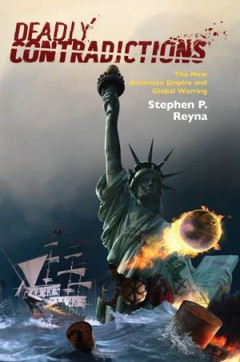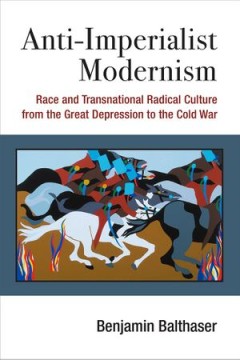Filter by

Putting Inequality in Context : Class, Public Opinion, and Representation in …
Rising income inequality is highlighted as one of the largest challenges facing the United States, affecting civic participation and political representation. Although the wealthy often can and do exert more political influence, this is not always the case. To fix political inequality, it is important to understand exactly how class divisions manifest themselves in political outcomes, and what …
- Edition
- -
- ISBN/ISSN
- 9780472130498
- Collation
- -
- Series Title
- -
- Call Number
- 306.209 73 ELL p

American Dolorologies: Pain, Sentimentalism, Biopolitics
Offers a critical history of the role of pain, suffering, and compassion in democratic culture. American Dolorologies presents a theoretically sophisticated intervention into contemporary equations of subjectivity with trauma. Simon Strick argues against a universalism of pain and instead foregrounds the intimate relations of bodily affect with racial and gender politics. In concise and orig…
- Edition
- -
- ISBN/ISSN
- 9781438450216
- Collation
- -
- Series Title
- -
- Call Number
- -

Water and Los Angeles
Los Angeles rose to significance in the first half of the twentieth century by way of its complex relationship to three rivers: the Los Angeles, the Owens, and the Colorado. The remarkable urban and suburban trajectory of southern California since then cannot be fully understood without reference to the ways in which each of these three river systems came to be connected to the future of the me…
- Edition
- -
- ISBN/ISSN
- 9780520965973
- Collation
- -
- Series Title
- -
- Call Number
- -

Deadly Contradictions : The New American Empire and Global Warring
As US imperialism continues to dictate foreign policy, Deadly Contradictions is a compelling account of the American empire. Stephen P. Reyna argues that contemporary forms of violence exercised by American elites in the colonies, client state, and regions of interest have deferred imperial problems, but not without raising their own set of deadly contradictions. This book can be read many ways…
- Edition
- -
- ISBN/ISSN
- 9781785330803
- Collation
- -
- Series Title
- -
- Call Number
- 327.730 09 REY d

Anti-Imperialist Modernism : Race and Transnational Radical Culture from the …
Anti-Imperialist Modernism excavates how U.S. cross-border, multi-ethnic anti-imperialist movements at mid-century shaped what we understand as cultural modernism and the historical period of the Great Depression. The book demonstrates how U.S. multiethnic cultural movements, located in political parties, small journals, labor unions, and struggles for racial liberation, helped construct a comm…
- Edition
- -
- ISBN/ISSN
- 978-0-472-12150-2
- Collation
- -
- Series Title
- Class : culture
- Call Number
- 303.484 BAL a

Washington State History
The history of Washington includes thousands of years of Native American history before Europeans arrived and began to establish territorial claims. The region was part of Oregon Territory from 1848 to 1853, after which it was separated from Oregon and established as Washington Territory following the efforts at the Monticello Convention. In 1889, Washington became the 42nd state of the United …
- Edition
- -
- ISBN/ISSN
- -
- Collation
- -
- Series Title
- -
- Call Number
- 973 RAN w
 Computer Science, Information & General Works
Computer Science, Information & General Works  Philosophy & Psychology
Philosophy & Psychology  Religion
Religion  Social Sciences
Social Sciences  Language
Language  Pure Science
Pure Science  Applied Sciences
Applied Sciences  Art & Recreation
Art & Recreation  Literature
Literature  History & Geography
History & Geography